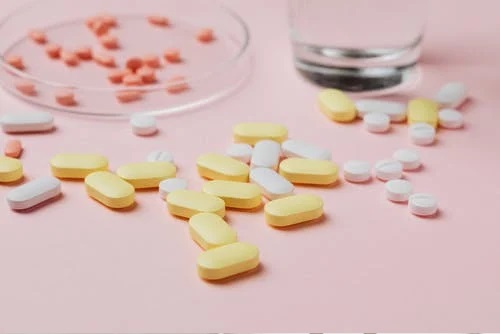3 Common Myths about Anti-Depressants
According to a 2016 survey by the National Institute of Mental Health, 6.7% of the American population experienced depression and anxiety disorders at least once in their lifetime. Those who seek help during such times are often prescribed anti-depressants and a referral to a qualified therapist. However, many people avoid taking anti-depressants due to the myths and misinformation associated with them. Here are three such myths debunked.

Myth 1: They’ll make you gain weight.
Many people are often concerned about putting on a few pounds after consuming anti-depressants. While it’s still a possibility, you must understand how the newer medications aren’t likely to make you gain unnecessary weight if your lifestyle consists of a balanced diet and adequate physical activity.
Nevertheless, if you experience weight gain as a result of taking anti-depressants, your doctor might prescribe an alternative medicine or suggest you take another medicine that’ll reverse the weight gain.

Myth 2: They’ll result in suicidal thoughts.
An anti-depressant’s primary aim is to eliminate the depressing thoughts and ideas from a person’s mind. In other words, doctors recommend taking anti-depressants to help patients recover from the suicidal thoughts resulting from chronic depression. Therefore, it’s safe to say that these medicines are less likely to result in something they’re meant to cure.
However, since most people who take anti-depressants include young adults and children, these pills may result in agitation in complex cases. Therefore, it’s critical to establish effective communication between the patient and doctor, especially when the treatment begins. Psychological therapy accompanied with an adequate dosage of anti-depressants can help patients combat the challenges associated with depression and anxiety.
Myth 3: They’re addictive.
No, anti-depressants aren’t addictive and shouldn’t be synonynized with substances like opiates, alcohol, and nicotine. However, they’re still powerful medications. Therefore, doctors suggest patients stop their consumption gradually, one day at a time.
Instant discontinuation of these medicines may result in withdrawal symptoms such as insomnia, flu, and dizziness.

At Advocate My Meds, we’re a full-service prescription assistance organization, offering a wide range of patient assistance programs after partnering with various pharmaceutical companies and healthcare practitioners across the United States. We’re committed to assisting you in financing the medications you need to manage your health condition and ensure optimal well-being. Therefore, if you’re an under-insured or uninsured individual with an income 400% below the federal poverty line, feel free to enroll in one of our prescription assistance programs. These include Johnson and johnson patient assistance, Pfizer patient assistance, Merck patient assistance, Janssen patient assistance, Bristol Myers patient assistance, Sanofi patient assistance, and more. Click here to contact us today!






